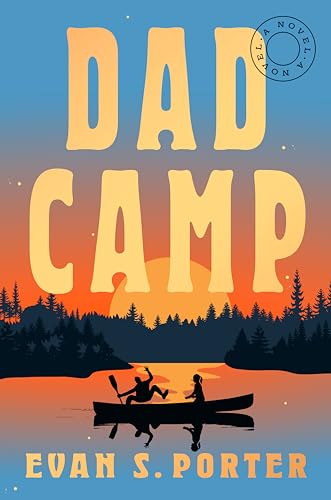
Introduction
In Dad Camp, we meet John, a loving father who sacrifices everything to be a “super dad” to his eleven-year-old daughter, Avery. However, as Avery enters the preteen phase, their once-close bond starts to fray. Desperate to reconnect, John takes her to a weeklong father-daughter retreat—a last chance to salvage their relationship before teenage girlhood fully takes over.
Main Characters
- John: The devoted father who gave up hobbies, friends, and his dream job to prioritize Avery. His motivation is to regain their lost connection.
- Avery: John’s eleven-year-old daughter, who has transformed into an eye-rolling preteen. Her motivations are hidden beneath her angst.
Plot
The central conflict revolves around John’s attempt to rebuild his relationship with Avery. He hopes the father-daughter camp will provide the perfect setting for bonding. However, Avery remains distant, and John senses she’s hiding something beyond typical preteen behavior. As they navigate the camp’s challenges, John strives to become Avery’s hero once more.
Setting
The story unfolds during a weeklong father-daughter camp—a remote summer retreat. The camp’s rustic environment, shared activities, and forced bonding sessions influence the characters’ interactions. It’s a pivotal backdrop for their emotional journey.
Themes
- Parent-Child Connection: Dad Camp explores the delicate balance between parental sacrifice and maintaining a genuine bond. John’s dedication to Avery contrasts with her growing independence.
- Identity and Change: Avery’s transformation from a daddy’s girl to a preteen reflects the universal struggle of identity formation during adolescence.
- Communication and Understanding: The novel underscores the importance of effective communication between parents and children. John’s efforts to decode Avery’s emotions drive the narrative.
Style
Evan S. Porter’s writing style is heartwarming and humorous. The book combines poignant moments with laugh-out-loud scenes. Realistic dialogue and relatable situations make it accessible to readers seeking both depth and entertainment.
Conclusion
Dad Camp reminds us that parenting isn’t about perfection—it’s about navigating the messy, imperfect journey of love, growth, and understanding. As John faces toxic dads, awkward activities, and camp drama, he learns that being a hero isn’t about grand gestures but about showing up consistently. This novel celebrates the messy, beautiful dance of parenthood and the magic of genuine connection.

